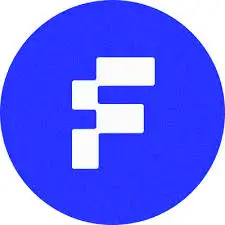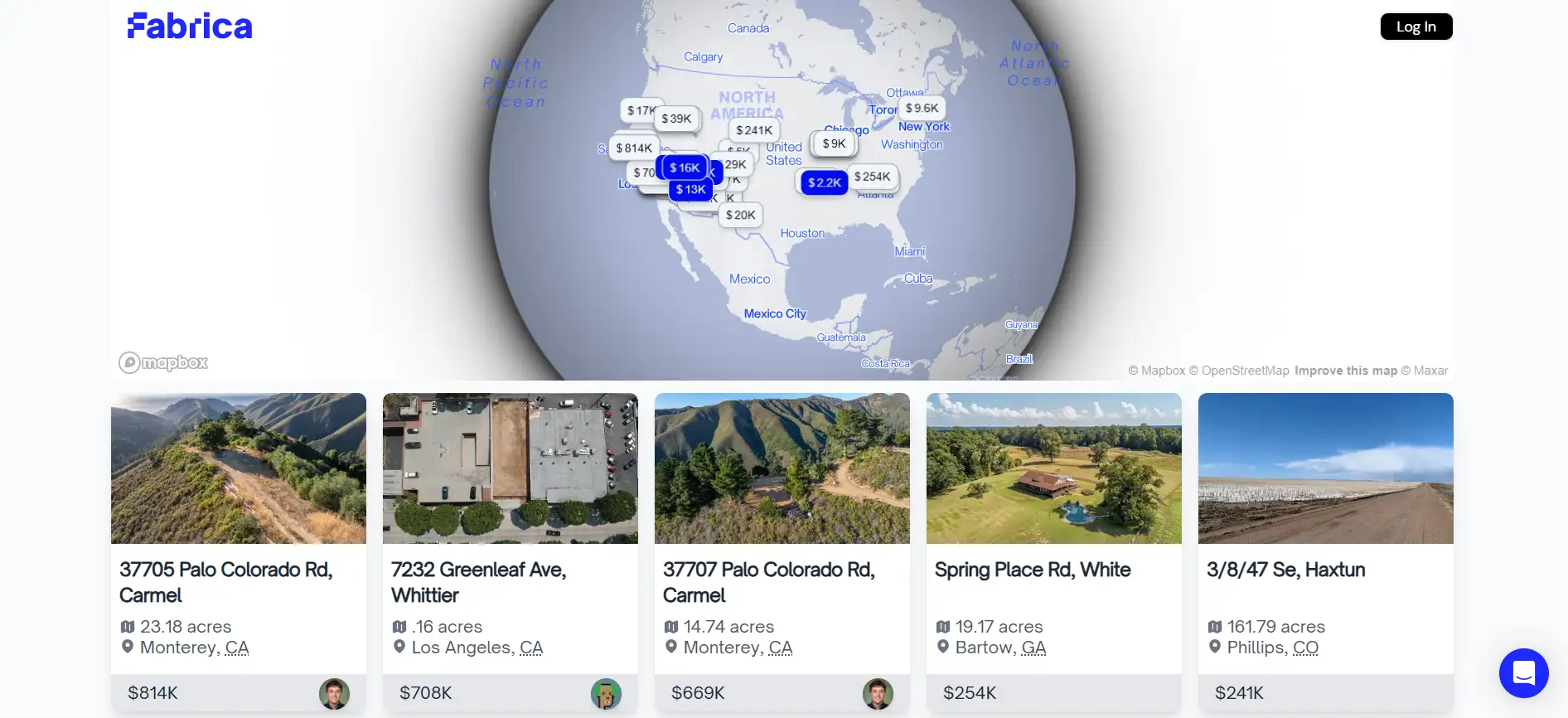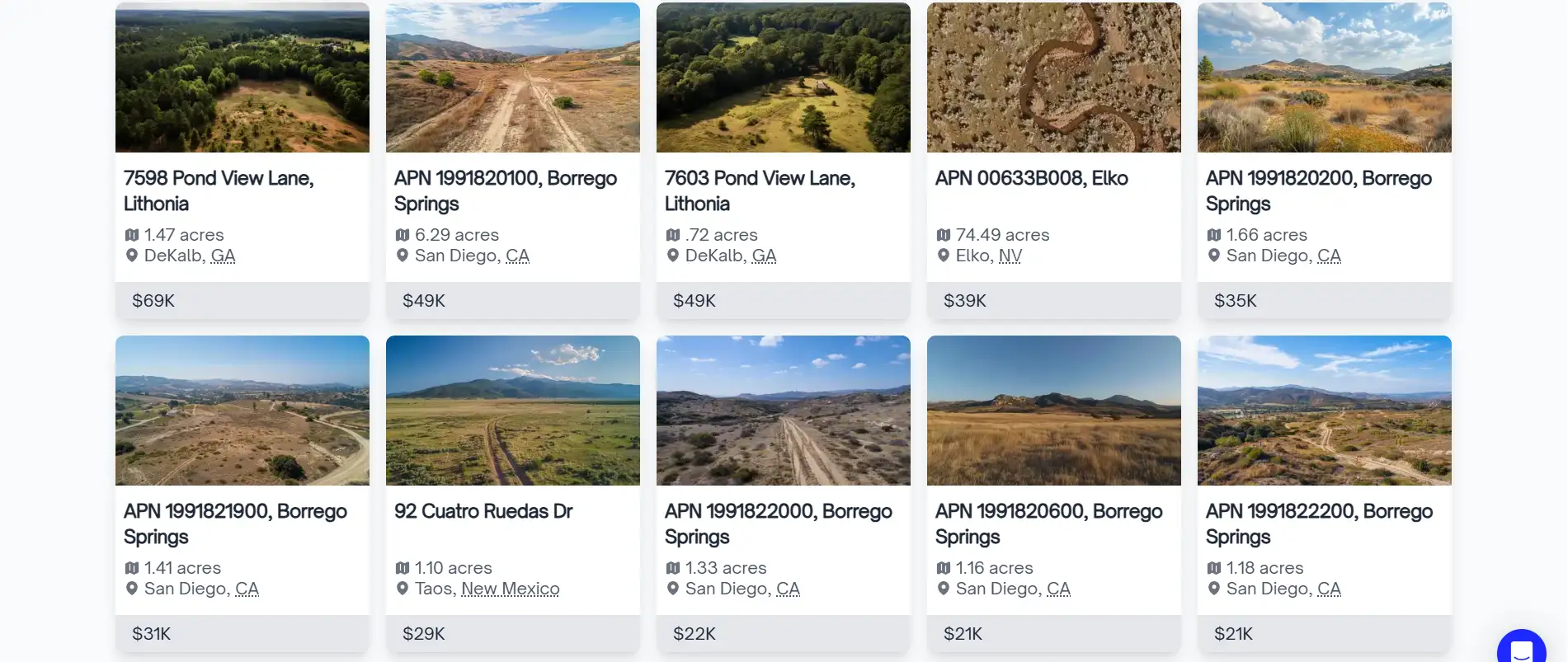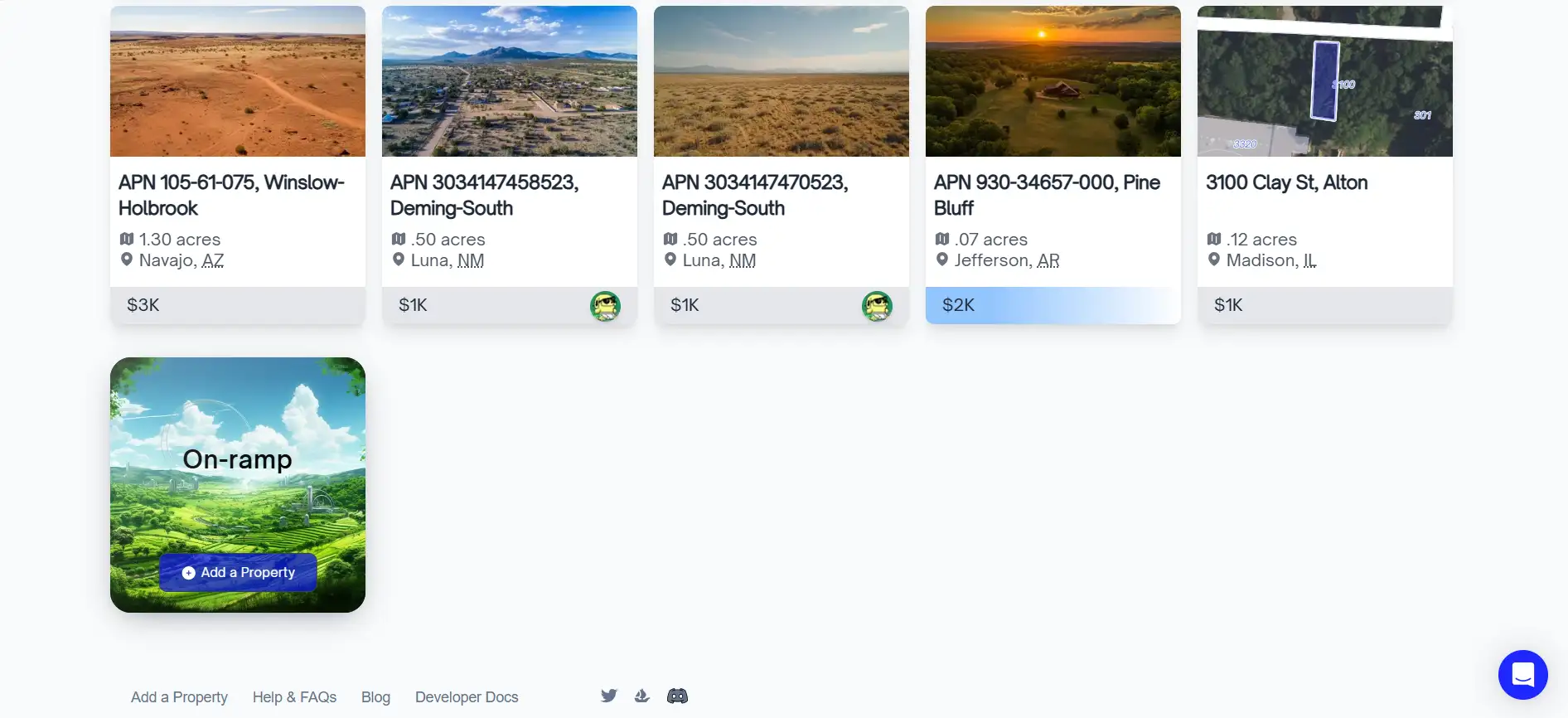About Fabrica
Fabrica is a groundbreaking platform that makes real estate programmable by tokenizing property ownership through blockchain technology. Since 2018, Fabrica has worked to bridge the gap between traditional land registries and modern decentralized applications by turning real-world properties into interoperable NFTs backed by legal agreements.
By integrating trusted legal structures and on-chain digital representations, Fabrica offers a new standard for how real estate is owned, traded, and integrated with Web3. Through its marketplace, validator network, and dynamic property metadata system, the platform empowers individuals and organizations to securely mint, manage, and transfer property rights with trust and transparency. Fabrica is not just digitizing real estate—it's redefining the infrastructure behind land ownership for the decentralized age.
Fabrica is an advanced Web3 platform designed to enable programmable real estate by bridging traditional legal frameworks with decentralized blockchain infrastructure. Since its launch in 2018, Fabrica has introduced a system for representing property ownership as NFTs, with full legal enforceability via operating agreements and validator-driven verification processes. The platform’s goal is to modernize how land is owned, traded, and utilized—without compromising the legal certainty that registries and deeds have historically provided.
At the heart of Fabrica’s architecture is the use of ERC-1155 property tokens, each of which encapsulates a real-world asset, validated and maintained by smart contract-based validators. These tokens are customizable with dynamic metadata fields including legal agreements, definitions, configurations, and ownership distribution. Whether the supply of a property token is set to 1 (for sole ownership) or multiple (for fractionalized property ownership), the NFT remains the legally binding representation of the asset. These NFTs can be minted directly by owners or delegated to validators who facilitate minting and compliance.
The system also employs the Validator Registry—a key component that maps human-readable validator names to smart contract addresses across supported blockchains. Validators act as legal bridges between the NFT and the real-world registry by performing a series of cross-checks: verifying title claims through county records, checking on-chain/IPFS data, performing valuation assessments, and maintaining property metadata. Validators can approve or deny transactions to maintain the integrity of the token’s legal value and ensure up-to-date information through real-time scoring.
Fabrica supports multi-chain deployment, with tokens existing on Ethereum Mainnet, Sepolia, and Base Sepolia. While full cross-chain transfer is not yet implemented, the architecture is already designed to support seamless property transfers between networks as the ecosystem grows. Moreover, smart contract custody models in the system allow for property tokens to be held in multi-sig wallets, DAOs, or DeFi platforms like NFTfi and MetaStreet, without losing their ownership context.
Designed for builders and institutions, Fabrica includes extensive developer documentation and integration points through APIs and NFT standards like ERC-7496. This opens the door to building real estate-based DeFi products, dynamic marketplaces, fractional ownership systems, or legal-fintech integrations using real-world assets. In doing so, Fabrica is building a programmable layer for global land ownership that respects legacy structures while embracing the future of property rights in the digital age.
Fabrica delivers powerful benefits and features for anyone looking to bring real estate on-chain while ensuring compliance, legal certainty, and composability within Web3:
- Real Estate NFTs: Fabrica turns real properties into ERC-1155 NFTs, allowing them to be owned, transferred, or fractionalized using standard crypto tools while retaining full legal backing.
- Validator-Powered Compliance: Validators verify property details against county records, title proofs, and third-party data. This ensures that each NFT remains in sync with real-world legal records.
- Legal Interoperability: Each property token is linked to an Operating Agreement that defines legal ownership and rights, making blockchain-based transfers enforceable under law.
- Flexible Ownership Models: Tokens can be issued with a supply of 1 (for sole ownership) or multiple (for fractional ownership), unlocking new models for shared property and investment syndicates.
- Multi-Chain Support: Fabrica operates across Ethereum Mainnet, Sepolia, and Base Sepolia, with architecture ready for future cross-chain real estate interoperability.
- On-Chain Custody Options: Property tokens can be held in EOAs, DAO treasuries, multi-sig wallets, or smart contracts used for collateral, bridging, and other DeFi use cases.
- ERC-7496 Traits: Fabrica uses token traits to expose metadata like validators and agreements directly on-chain, improving security and compatibility with platforms like OpenSea.
- Dynamic Metadata and Valuation: Each property NFT has up-to-date, validator-managed metadata including images, legal definitions, and property valuations—all accessible through Fabrica’s API.
Fabrica makes onboarding real property to the blockchain simple and legally sound. Here’s how to get started on Fabrica:
- Connect Your Wallet: Visit the Fabrica App and click “Connect Wallet.” Use MetaMask, WalletConnect, or create a wallet using Passkeys via email or social accounts.
- Start the On-Ramp Process: Click on "On-Ramp" and enter details about the property, including your full legal name, address, and ownership structure (individual, LLC, trust, etc.).
- Review and Sign Legal Docs: Fabrica generates all required documents digitally. You’ll receive a link to complete the signing process with a notary, ensuring legal compliance before minting.
- Mint Your Property NFT: Once your paperwork is verified and recorded, Fabrica mints your NFT and deposits it into your wallet. The NFT now represents your full ownership or stake in the real-world asset.
- Customize or List Your Property: You can update metadata like images, descriptions, and external info via the configuration interface, or list the property on marketplaces like OpenSea.
- Manage Ownership and Governance: Use smart contracts, DAO treasuries, or multi-signature wallets to hold or govern property tokens. The NFT retains full legal backing as defined by the Operating Agreement.
- Stay Compliant with Validators: Validators monitor your NFT for regulatory and record consistency. They manage valuations, approve transactions, and generate trustable marketplace metadata.
- Join the Community: Explore use cases, validator tools, and development opportunities by engaging with the team and other users on Discord.
Fabrica FAQ
Fabrica achieves legal integration through a structured Operating Agreement and Trust Agreement system. When minting a property NFT, the legal title is placed into a trust whose ownership is represented by the NFT. The NFT holder, whether an individual or entity, gains full rights to the property under U.S. law. All documents are signed with a notary, recorded with local registries, and linked directly on-chain. Learn more at Fabrica.
Yes. Fabrica uses the ERC-1155 token standard to support fractional ownership. When a property NFT is minted with a supply greater than one, each token represents a proportional ownership share. For example, owning 25 out of 100 tokens grants you 25% ownership of that property, with rights and governance defined in the Operating Agreement linked to the NFT.
Validators act as trusted bridges between the real world and blockchain. They verify ownership claims via county records, generate property metadata, assign valuation estimates, and monitor ongoing compliance. Validators can also approve or reject property-related operations and provide tools to simplify onboarding. Their names and addresses are managed through the Validator Registry for transparency. See the validator docs on Fabrica for details.
Absolutely. Fabrica supports multiple custody types including smart contracts, DAOs, and escrow systems. If a property token is held in a multi-sig wallet or DAO treasury, beneficial ownership is attributed to the group or protocol controlling that contract. Fabrica ensures that custody type does not alter legal ownership unless the token is transferred into another EOA or governance address.
Fabrica keeps NFT data current via validators, who monitor and validate real-world changes. If records or valuations are updated, validators revise the metadata and re-evaluate the token’s confidence score. Some fields like the definition are immutable, but configuration details such as images or property attributes can be updated through the Fabrica interface or by validator APIs. All updates are reflected on-chain or through IPFS.
You Might Also Like












